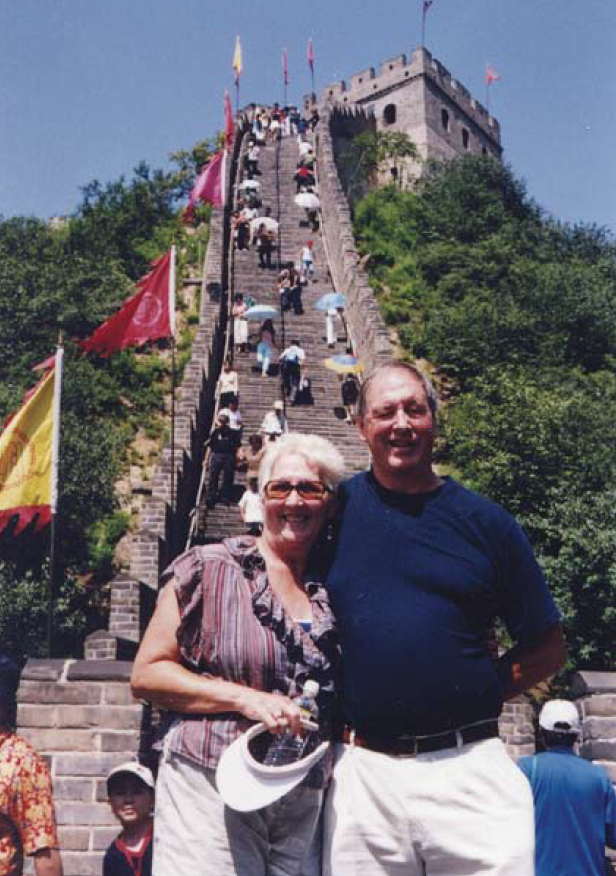Are you a native speaker of English? Congratulations, you have won the lottery of birth and mother tongue and so you can go anywhere and teach English. They really want you, most of those places and agents on the Internet, and they would grab you even if you had never taken a single teaching course. As you are a teacher, however (and like motherhood, once conferred that status is irrevocable), then you really are a valuable commodity on the ESL marketplace. You can negotiate a salary that will keep you quite comfortable in wealthier host countries, and even if you volunteer your skills in the developing world, you can obtain some benefits. In China, Beverly and I received enough to live on and to travel and still brought money home without having to draw upon our pensions. In Peru, we were paid the same five dollars per hour as all the others, but that provided us with housing, food and travel for four months. In Tanzania, we volunteered and paid for our room and board and received overwhelming love and appreciation from students and staff. In all those places, we made deep friendships and felt that we gained a far richer education than any we provided. If you are a teacher, no matter what your mother tongue or accent, your skills are needed in so many countries, and your contribution will be wonderfully rewarded.
Aspiring teacher-travellers always ask us what educational supplies they should take. Take nothing—you have enough in your head to carry you through. If you even started to gather stuff together, there would be no stopping you. We did that for our first job and had a steamer trunk—no, two steamer trunks—full of material by departure time. It cost us over $300 to have the things shipped to our college in Nanning, China. They didn’t arrive until two months after we did, and although our agent had promised to reimburse us, we didn’t see any cash until we had berated him for a full year. And we could have done fine without the supplies. The college library benefited from the books we took and the steamer trunks served us for packing back all of our purchases in China, but we could have done without—all of it: the supplies, the berating and the purchases. Take what you know and give it all away.

Beverly Brookman and Derek Peach at the Great Wall of China.
Take little in the way of personal things also. Pack just enough clothes in your carry-on bag to maintain your sense of modesty and have anything else you need made for you when you arrive at your destination. In Africa, Latin America or China, there will be tailors and fabric and you will support the local economy by having your garments sewn there. The prices will be very cheap, the product will be satisfactory or they will alter it for you, and a family enterprise will benefit.
The one exception to my leave-it-behind rule is sink stoppers. No other country uses them, I swear, and even in Canadian hotels and rec centres they may be absent. You won’t need fancy ones either—just simple, flat stoppers for sink and tub, and you will rule! Colleagues will envy you, concierges will fear you, women will want you.
Some time ago, we memorized our passport numbers, each other’s as well as our own. It is truly amazing how many times you will need to recite it. That number becomes your identity for hotel reservations and tour bookings. It is placed on every record when you go to a bank or a clinic or wherever/ whenever you have a job and it is handy to have a photocopy of it to show to every hotel clerk. I took to carrying one in my wallet and would sometimes forget to take my passport with me on a trip but found that the photocopy was accepted without question.
If we carried any large amounts of cash with us on trips, we would leave our stash, along with our passports, in the hotel safe. ATM cards work fine in most places and the currency exchange will be made as of the transaction date without the extra 1.5 to 2.7% fees that credit card companies will charge. Just as at home, it pays to get enough cash at one time to last for a while. You wouldn’t run to your local ATM for $20 every day or so, would you? Your cash reserve, bank cards and your passport are the important items, and those are the things to keep in that money belt someone gave you before you left home, and when you get to your hotel, let the clerk put them safely away. Just memorize the numbers you’ll need, and you’ll need them until you clear Customs going home.
Welcome back. It was a great trip and you must have a gazigabyte worth of photos. Hopefully you photographed everything at maximum resolution because you can always resize downward but not up. Hopefully too, you remembered that you can never have too many backups and transferred some shots periodically to diskettes. Please don’t make up slideshows with the whole set. Do small segments and serve lots of wine and you’ll keep your friends. They just want to know you got back safely, and the all rest is small talk. Try to remember to speak normally and not v-e-r-r-r-y s-l-o-w-l-y w-i-t-h v-e-r-r-y s-i-m-p-l-e w-o-r-d-s or you’ll really annoy them, especially if any of them are ESL teachers.
ABOUT THE AUTHOR
Beverly Brookman and Derek Peach
Beverly Brookman and Derek Peach, two former Saanich, BC teachers, have written a book about their time in Peru. One Room and a Penknife is available from them for $20 plus postage by emailing dpeach5@yahoo.com. Profits from book sales go to the clinic of Santa Angela in Peru.
This article is from Canadian Teacher Magazine’s May 2009 issue.












